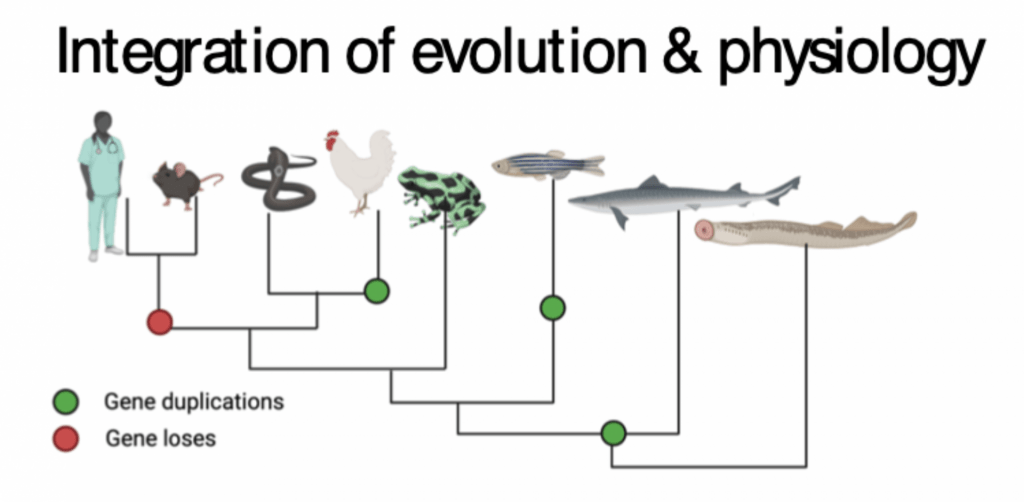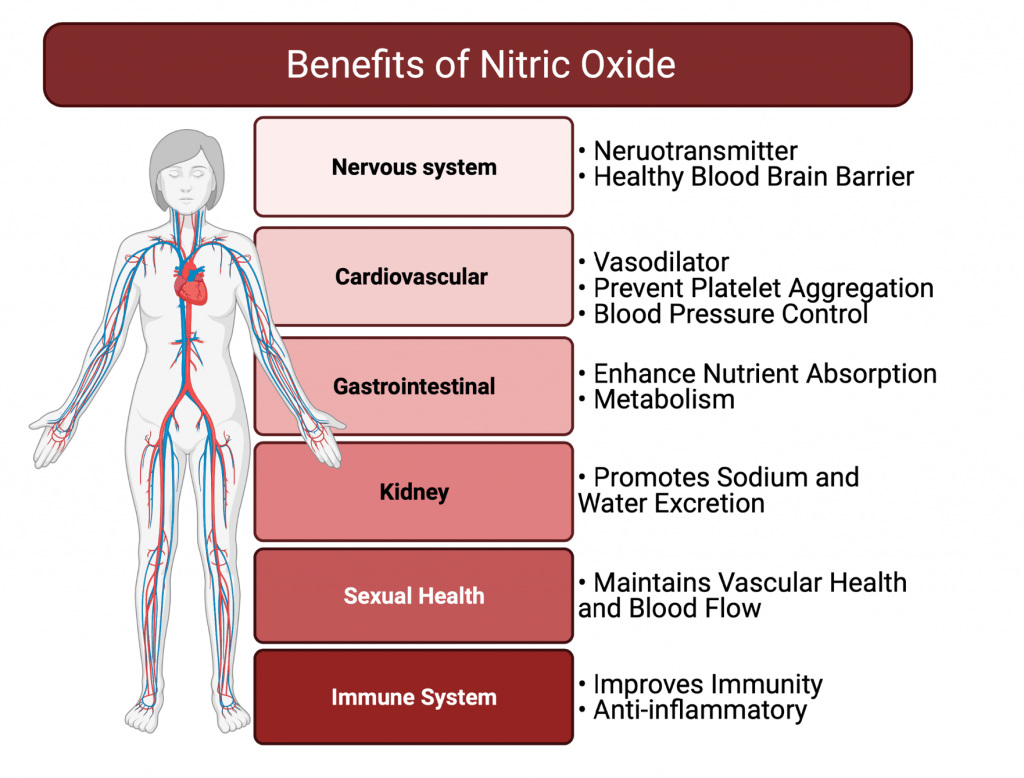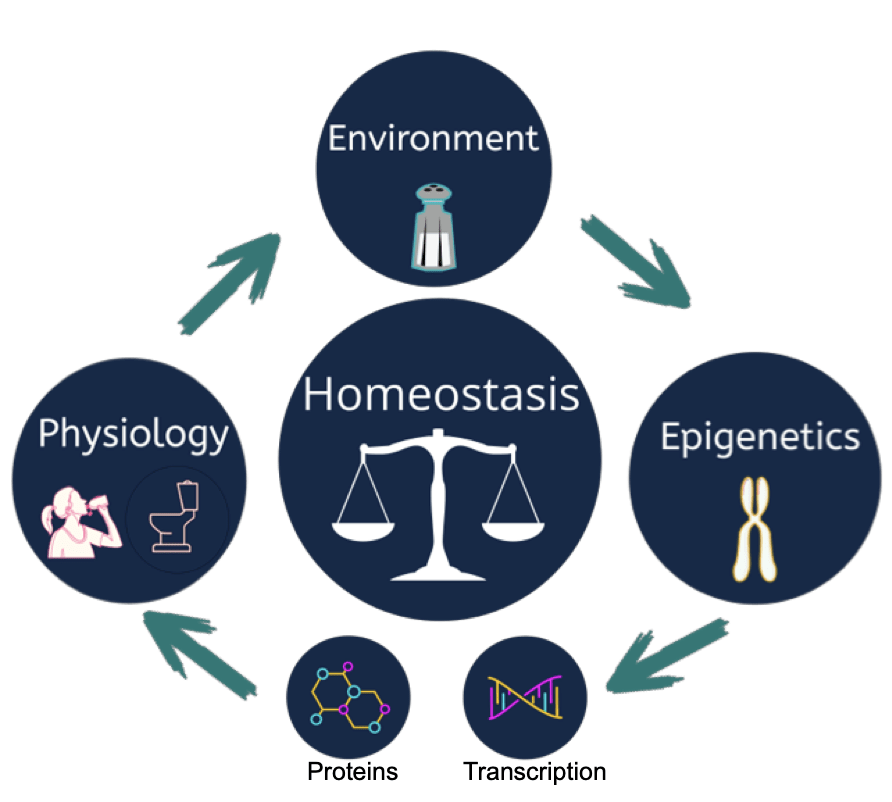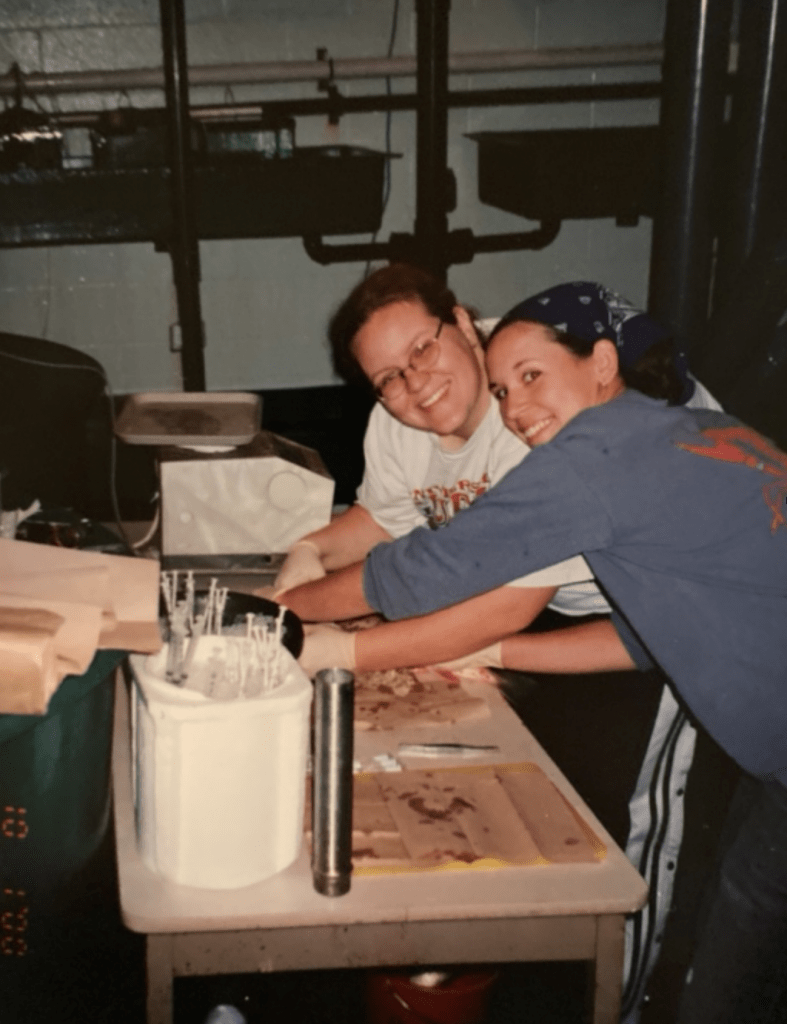
I have always be curious about how the body maintains fluid-electrolyte balance in a changing environment, whether it is a fish that migrates daily between fresh and sea water or a human that consumes a lot of dietary sodium. As an undergraduate marine biology major at the University of Guelph, I began studies to test hypotheses in comparative and ecological physiological contexts.
For my PhD I moved from Canada to to University of Florida, Department of Zoology to join the lab of Dr. David Evans. Go Gators! During my Ph.D. dissertation, we tested the hypothesis that endothelin, nitric oxide, and prostaglandins regulated salt transport by the gill of the euryhaline killifish (a fish that daily migrates between freshwater and seawater).

Moreover, we tested the effects of changing environmental salinity on gene and protein expression in the gill, which is analogous to testing questions about salt loading on mRNA and protein in the mammalian kidney. We also determined the phylogenetic relationship among the endothelin receptors, thus elucidating the evolutionary history of this gene family.

My enthusiasm for research led me to pursue postdoctoral training in the lab of Dr. Jennifer Pollock with the motivation to test hypotheses in a biomedical context and learn new techniques and technologies. Here, I helped develop a collecting duct-specific nitric oxide synthase-1 (NOS1, neuronal NOS) knockout mouse, and tested the hypothesis that renal collecting duct NOS1 is critical for fluid-electrolyte balance and thus blood pressure regulation.

I have been so fortunate to have amazing mentors over my training that have helped shape me as a scientist!



